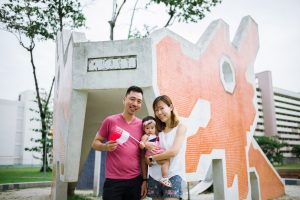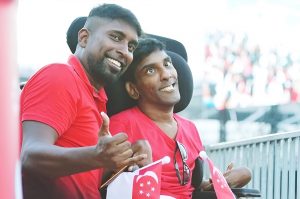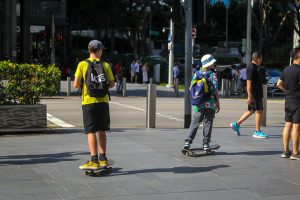This is a series of voter profiles by RICE where we speak to Singapore’s many disparate communities to find out the issues that matter to them.
“And I just don’t want that to happen again,” he adds.
As a fellow Gen-Z Singaporean, I expected the interview with Zul to be straightforward: he would talk about liberal politics, or about gender equality or migrant workers’ rights as part of the changes he’d like to see implemented by future leaders. I was ready for him to lash out at the ruling party for not being ‘democratic’ enough, while also presumably being disconnected from the regular Singaporean’s struggles.
But here he was, lamenting Singapore’s high costs of living: “I go grocery shopping every week. At first, when I buy, I think: ‘$1 only, so cheap’, but over time in one month, it will cost a lot. Imagine with 9% GST … ”
It’s not difficult to see why he has these worries: Zul shares a one-room HDB flat with his father, step-mother, and five siblings; he has been hopping around jobs since he was 17 years old, from banquet server to KFC employee, to barista in various cafes. He didn’t do well for his studies during his time at Higher NITEC in ITE College East due to financial difficulties.
Currently working as a full-time ambulance driver at a private medical service company, he earns around SGD$1600 a month, which is only sufficient to “put food on the table”.
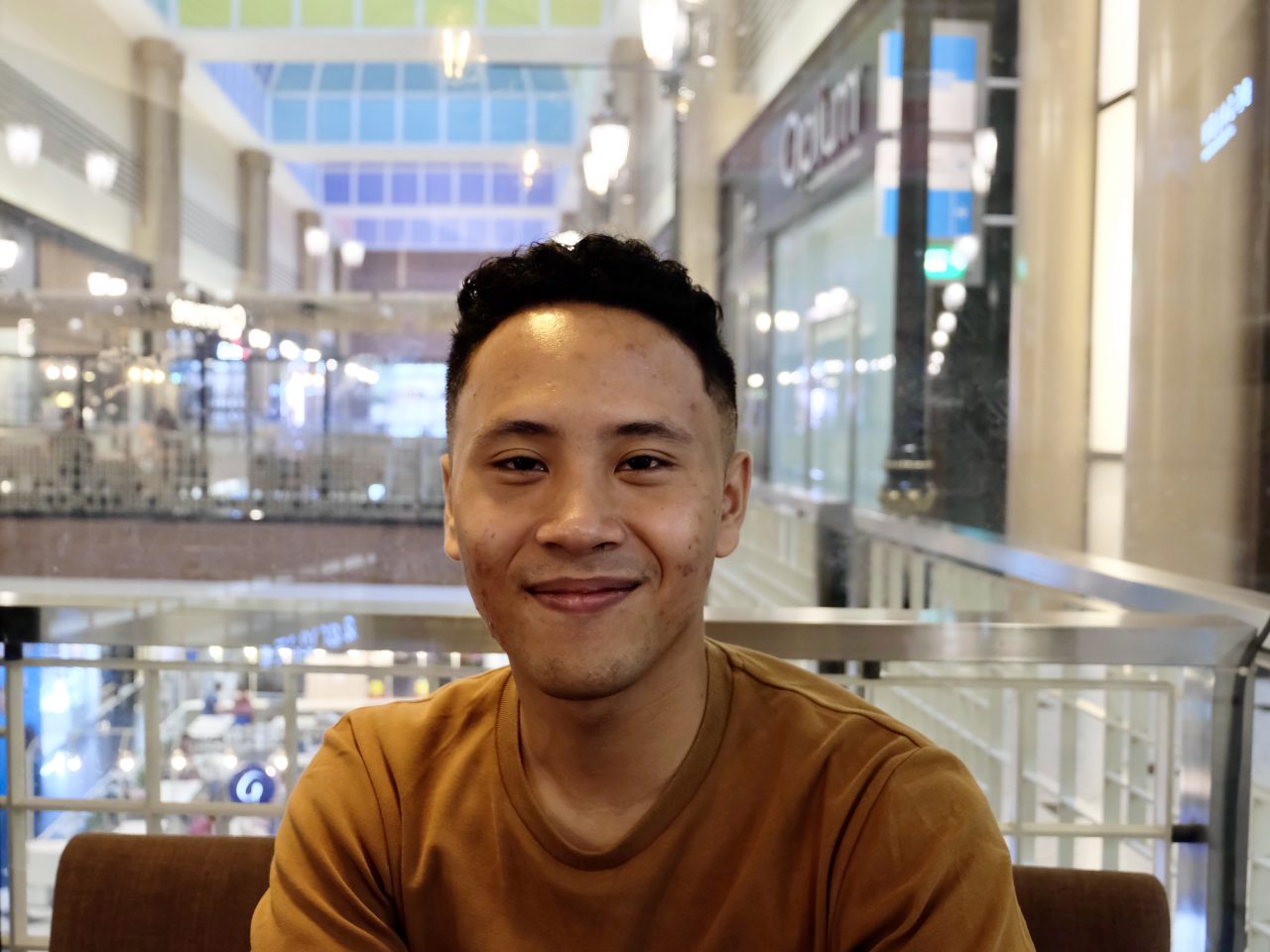
The closest thing to ‘social justice’ that he cares about are children who live in broken families, just as he does: “We look like a family-oriented country … But divorce rates are high. [Will these parents] teach their children how to be a good citizen when they grow up; to serve the country well?”
He interjects briefly to express excitement over Workers’ Party candidate Muhammad Azhar Bin Abdul Latip: “He’s a single father. That’s rare to see. Most of the time [we only know] about single mothers.”
On this note, he’s been scrutinising all the candidates’ biographies this GE.
I want to take a good look at the candidate. How do they make me feel? [I want to] understand what they’ve been through.
He wants to be represented by a politician who “really came up from nothing” (unlike those who have been “born with everything”) and who best understands the lower-income Singaporeans’ concerns. “They’re much more hungry, they have more experience,” he says.
As part of a racial minority in Singapore, he also feels that more can be done to promote minority representation. He cites overcoming language barriers as a possible means to achieve this; leaders (belonging to minority groups) who can speak their language fluently will best be able to represent their group’s interests and facilitate understanding between communities as well.
Seeing more representation in Parliament is also as equally important to him:
“If I only see the majority’s faces, then it’s a big question mark there. Why no minority face?”
I ask if he feels represented by any minority MP: “Amrin Amin! I feel him. Such a chill guy. He did a lot for the community. He tries to connect with the youth. He knows that we’re the future.”
He mentions a youth-organised dance competition he participated in last year, when the MP came down in “just T-shirt and jeans” to support them. He also came to Zul’s ORD talk during his time in NS, opening an “honest, man-to-man discussion” with all NSFs about the future of Singapore.
Still, he admits that it was a little weird to hear the MP speak his native language (ie Malay): “It’s so formal. It just didn’t feel real!” he laughs.
“I think it all comes down to [the politicians’] interactions with the people.” He suggests that MPs start reaching out to students in polytechnics or ITEs, instead of taking the usual walks around hawker centres and shopping malls.
But he also wonders about Singaporeans’ unwillingness to reciprocate our leaders’ efforts in bettering the community. In Meet-the-People sessions, for example, he says that most Singaporeans only go to politicians with their problems, instead of proposing ideas that will help improve the lives of others in the neighbourhood.
“As much as we have a hard time getting to know the MPs, they also have a hard time getting to know us. It takes two hands to clap.”
Ultimately, Zul believes that most of his struggles are rooted in equality (or lack thereof) in Singapore.
Welfare support from the government is little; he’s currently only receiving help from a charity organisation who delivers certain basic necessities like rice and vegetables every week. This was only made possible through his mother’s application for the charity’s support programme.
“Maybe [MPs] can check in on these families more, provide more support.” He suggests that there should be more outreach to low-income households within each GRC/SMC.
He’s also unhappy with the incumbent’s constant lack of transparency: “It’s very hard for Singaporeans to find out about things. Whatever they say, they make sense, but you still don’t feel right about it.”
On that note, he expresses interest in the Workers’ Party’s progressive policies—such as the national minimum wage—that he believes will not leave the marginalised behind.
He clarifies that he’s “quite centrist” on the political spectrum. If anything, he—like Zul—has many considerations in mind before Polling Day: “I’m voting based on manifestos, experience, interactions with the people and candidates’ background.”
But with regards to policy, he feels that the PAP has been focusing too much on capitalistic policies. With more Singaporeans being born into privilege, he wants future leaders to redistribute wealth and resources to those who need them most.
He referenced Dr Jamus Lim’s words on the recent four-party live political debate, in which the candidate mentioned that the Workers’ Party’s proposed policies would lean towards social: “When I heard this, my eyes lit up because this is the balance that I’ve always wanted to see.”
A proper government that takes care of its people not just by continuing to look towards economic growth but is also able to help them directly and efficiently.
Unlike Zul, however, Fabien is mainly concerned with social issues. He drops many other ‘Gen-Z Esque, SJW-y’ keywords: “mandatory minimum to hire People With Disabilities (PWDs) … more opportunities for minority groups … equal opportunities in social/corporate circles … a greener Singapore …”
Yet, Fabien’s opinions are backed by his observations of fellow Singaporeans:
“Even simply in my area, [I wish other minorities] are taken into account and never left out.” He proposes the addition of Malay or Tamil speakers during events and having sign language interpreters during talks.
“I also want to see improvements made to my GRC by future MPs.” Such changes include building more facilities for residents, especially for the many young couples and children living there.
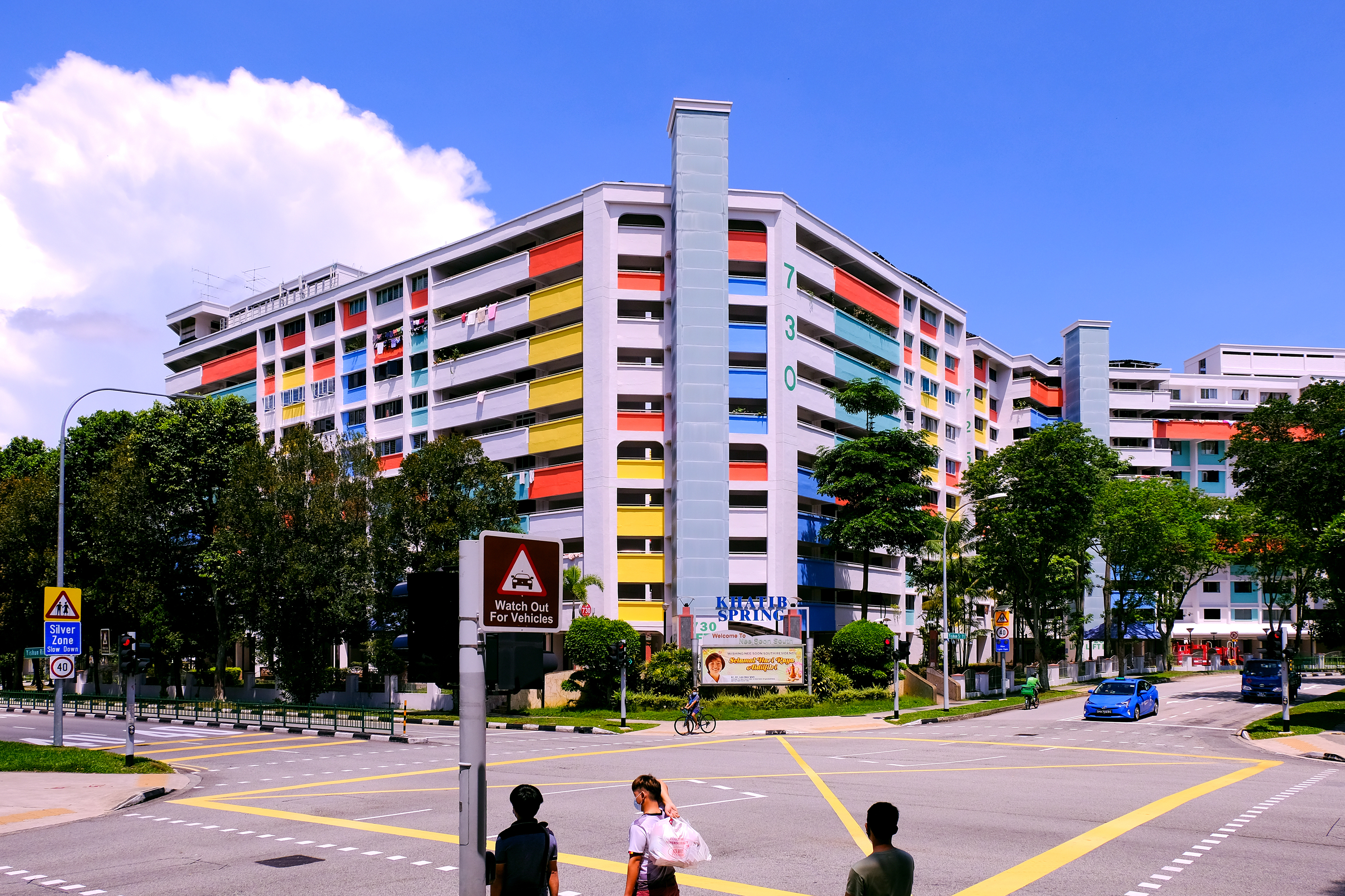
While relaying his fears over career prospects during this economic downturn, Fabien wants to be assured of job security when he graduates: “When I vote, I would also want to guarantee some advantages for myself. Knowing that somehow, somewhere I would be able to gain something.”
Overall, he believes that “diversity, inclusion, a country that is able to work its way to achieve equality would allow for a country to rise above others.”
But for this to happen, Zul believes that the opposition must be given a chance in Parliament:
“If the PAP really loves the country and its people, they should be willing to give up more seats to the opposition and guide them along … instead of fighting for that chair [and power].”
Fabien provides an alternative view, citing that the individuals in Parliament and their intentions matter most: “A ruling party system can work if the people inside know how to truly check each other. The opposite is true also: if you have too many parties that cannot agree with each other, the government [will stay] at a stalemate.”
On the other hand, Zul’s sentiments ring true with most of my friends who are first-time Gen-Z voters as well.
One of them says, “If we continue denying opposition parties of robust development, the PAP will become complacent, the opposition [will continue to be seen as] useless and the people will keep on feeling like there’s no choice but to vote the incumbent.”
Another friend is also disappointed at the status quo: “At this point, I value having opposition in MP seats for the sake of opposition.” If anything, he’s setting a much higher bar for the PAP, considering the incumbent advantage they’re holding this GE.
A credible threat means they have to listen.
Multi-partisanship, as it appears, is an emerging area of concern for Gen-Zs in Singapore’s politics.
They’re built on valid concerns about Singapore’s future as far as equality is concerned, by Gen-Zs who are disempowered by the system themselves.
How’s that not a social issue to care for?

I think people mistake [us for being] ‘Westernised’ … because somehow political standings have become synonymous with moral and ethics. But in reality, Gen-Z like ourselves are just calling for moral progression, fighting for equality, and giving justice to the less privileged.
As rightfully pointed out by a friend (aforementioned): Even the ‘regular Singaporean’s’ issues—minimum wage, CPF, BTO availability, employability—are matters of social justice that will disproportionately affect first-time voters in the future.
This group of citizens holds an equal, if not more important, stake as everyone else every election. As Fabien says, “My vote has weight; that I, alone, am able to have a voice just by putting an ‘x’ onto a slip, [which] will inherently influence … my future and the future of society in one way or another.”
Perhaps, as another friend suggested, the question to ask should be: “Who’s the older generation to decide what issues the younger generation ought to vote on?”
Have a lead for a GE related story? Send it to community@ricemedia.co.

